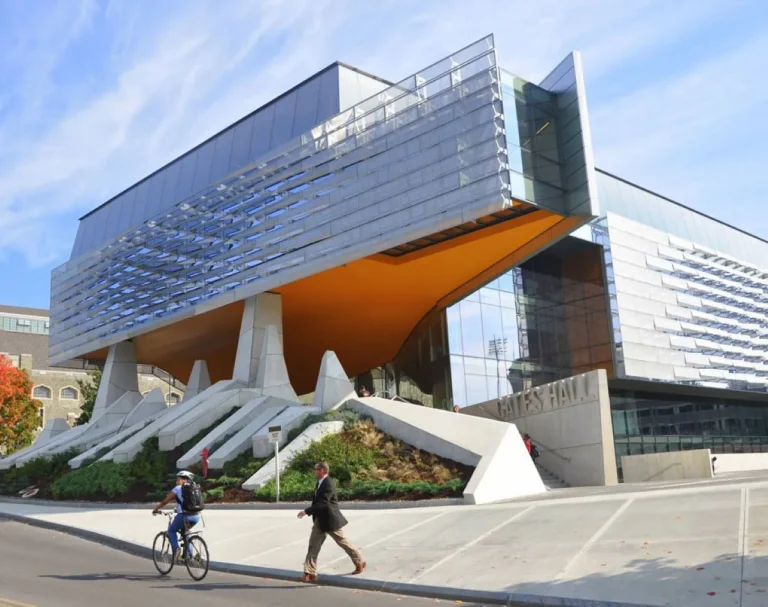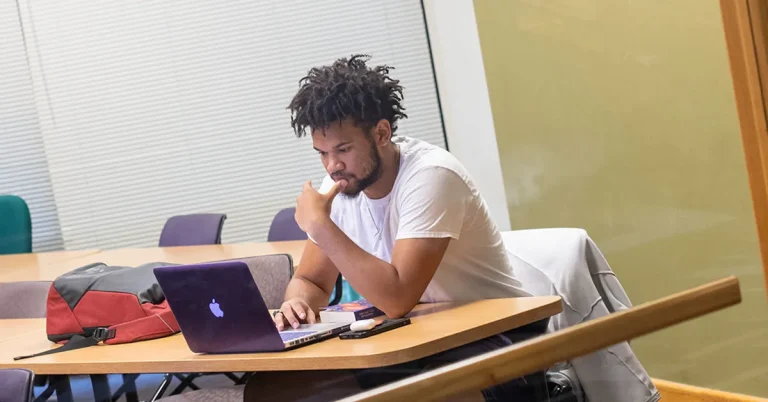How To Get Better At Science
Science is an expansive and fascinating field covering many disciplines and areas of study. Mastering science involves curiosity, critical thinking, and a lifelong commitment to learning. Whether you struggle with certain scientific concepts or simply want to enhance your scientific skills, there are many effective strategies you can implement.
If you’re short on time, here’s a quick answer to your question: Read voraciously, conduct experiments, join study groups, attend science events, apply concepts in everyday life, practice explaining concepts, and continuously seek deeper understanding.
Read Scientific Literature
One of the best ways to improve your understanding of science is by reading scientific literature. This includes research papers, articles, and studies published in scientific journals. By exploring these sources, you can gain valuable insights into the latest discoveries and advancements in various scientific fields.
Here are some ways you can incorporate scientific literature into your learning:
Read science magazines and journals
Science magazines and journals are excellent resources for staying up to date with the latest scientific research. Publications like Nature, Science, and Scientific American cover a wide range of scientific topics and provide in-depth analyses of groundbreaking studies.
Reading these magazines can help you understand complex scientific concepts in a more accessible and engaging way. You can subscribe to these publications or access their articles online.
Follow science blogs and podcasts
In addition to traditional scientific literature, science blogs and podcasts offer a more informal and conversational approach to learning about science. Many scientists and science enthusiasts maintain blogs where they discuss their research, share interesting findings, and provide insights into the scientific process.
Similarly, science podcasts are a convenient way to stay updated on the latest scientific discoveries while on the go. Some popular science blogs and podcasts include Science Friday, SciShow, and Science Vs.
Read biographies of famous scientists
Learning about the lives and work of famous scientists can be inspiring and educational. Biographies of scientists like Albert Einstein, Marie Curie, and Isaac Newton provide valuable insights into their groundbreaking discoveries and the challenges they faced along the way.
By understanding the stories behind these scientific legends, you can gain a deeper appreciation for the scientific process and the impact it has on our world.
Stay updated on new discoveries
Science is constantly evolving, and new discoveries are made every day. To keep up with the latest developments, it’s important to stay informed about ongoing research and breakthroughs. You can do this by following reputable science news websites such as Science News, ScienceDaily, and New Scientist.
These websites provide summaries of recent scientific studies and articles, allowing you to stay informed about the latest advancements across various scientific disciplines.
By incorporating these strategies into your learning routine, you can enhance your scientific knowledge and develop a deeper understanding of the fascinating world of science.
Conduct Experiments
If you want to improve your skills in science, one of the best ways to do so is by conducting experiments. This hands-on approach allows you to apply theoretical concepts and gain practical knowledge.
Recreate key experiments on your own
One effective way to enhance your scientific understanding is by recreating key experiments on your own. By following in the footsteps of renowned scientists, you can gain insights into their thought processes and methodologies.
For example, you can recreate Galileo’s famous experiment by dropping objects of different weights from a height to observe how gravity affects their fall. This not only helps you understand the principles behind the experiment but also improves your analytical thinking and problem-solving skills.
Test hypotheses through hands-on projects
Another way to improve your scientific skills is by testing hypotheses through hands-on projects. Choose a topic that interests you and formulate a hypothesis that you can test experimentally. For instance, if you are curious about the effect of sunlight on plant growth, you can design an experiment where you expose plants to different levels of sunlight and measure their growth over a period of time.
This not only allows you to practice the scientific method but also helps you develop critical thinking skills and the ability to analyze data.
Use the scientific method for inquiries
Using the scientific method is crucial for conducting successful experiments. This systematic approach involves making observations, formulating a hypothesis, designing experiments, collecting data, analyzing results, and drawing conclusions.
By following this method, you can ensure that your experiments are well-structured, controlled, and reliable. It also helps you understand the importance of objectivity, replication, and peer review in the scientific community.
Enter science fairs to showcase work
Participating in science fairs is an excellent way to showcase your scientific work and receive feedback from experts in the field. Science fairs provide a platform for students to present their experiments, research, and discoveries.
This not only helps you gain recognition for your efforts but also allows you to learn from other participants and engage in scientific discussions. Additionally, science fairs provide an opportunity to network with professionals in the scientific community and explore potential future career paths.
Join Study Groups
One effective way to improve your science skills is to join study groups. Collaborating with like-minded peers can enhance your understanding of complex scientific concepts and foster a supportive learning environment.
Form study groups with motivated peers
When forming study groups, try to gather a group of motivated peers who share a common interest in science. This will create an environment where everyone is enthusiastic about learning and can contribute to each other’s knowledge.
By working together, you can tackle difficult concepts, discuss different perspectives, and help each other overcome challenges.
Teach others what you are learning
One of the best ways to solidify your understanding of scientific concepts is by teaching them to others. By explaining complex ideas in simple terms, you not only reinforce your own knowledge but also help your study group members grasp the material better.
Teaching others also allows you to gain a deeper understanding of the subject matter as you have to organize your thoughts and present them in a coherent manner.
Participate in tutoring and mentoring programs
In addition to forming study groups, consider participating in tutoring and mentoring programs. These programs provide opportunities for you to receive guidance from more experienced individuals, such as teachers or older students who have excelled in science.
They can offer valuable insights, clarify any doubts you may have, and provide additional resources to further enhance your learning.
Partner on group science projects
Collaborating on group science projects is another effective way to improve your science skills. Working together with your study group members on hands-on projects allows you to apply your knowledge in practical ways and develop critical thinking skills.
It also encourages teamwork and communication, both of which are essential in the scientific field.
Remember, joining study groups is not only beneficial for improving your science skills but also for fostering friendships and creating a supportive network of peers who share similar goals. So, don’t hesitate to reach out to your classmates or fellow science enthusiasts and start forming study groups today!
Attend Science Events
One of the best ways to improve your knowledge and skills in science is by attending science events. These events provide a unique opportunity to learn from experts in the field, engage with like-minded individuals, and explore the latest advancements in scientific research.
Here are some ways you can make the most out of attending science events:
Attend lectures and seminars
Attending lectures and seminars is a great way to gain insights from renowned scientists and researchers. These events often cover a wide range of topics, from biology and physics to chemistry and astronomy.
Listening to experts share their knowledge and experiences can not only expand your understanding of various scientific concepts but also inspire you to delve deeper into the subject.
Visit museums and science centers
Museums and science centers are treasure troves of scientific knowledge and interactive exhibits. They offer a hands-on learning experience that can be both educational and entertaining. Exploring the exhibits, watching demonstrations, and participating in interactive activities can help you grasp complex scientific concepts in a fun and engaging way.
Make sure to check out the websites of local museums and science centers to find out about upcoming events and special exhibits.
Volunteer to help at science fairs
Science fairs provide a platform for students to showcase their scientific projects and experiments. Volunteering to help at these events not only allows you to contribute to the scientific community but also gives you the opportunity to learn from the projects and interact with young, enthusiastic scientists.
You can offer your assistance in setting up exhibits, guiding visitors, or even judging the projects. Getting involved in science fairs can be a rewarding experience that enhances your understanding of scientific principles and ignites your passion for discovery.
Go to local astronomy viewings
Stargazing is a fascinating way to explore the wonders of the universe. Many astronomy clubs and organizations organize local astronomy viewings where you can observe celestial objects through telescopes and learn about the mysteries of the cosmos.
These events often feature knowledgeable astronomers who are eager to share their expertise and answer your questions. Attending these viewings can deepen your understanding of astronomy and inspire you to pursue further studies in the field.
Remember, attending science events is just the first step. To truly get better at science, it’s important to actively engage in the learning process, ask questions, and seek opportunities for hands-on experimentation. So, put on your scientist hat and start exploring the fascinating world of science!
Apply Concepts to Everyday Life
One of the best ways to get better at science is to apply scientific concepts to your everyday life. By doing so, you can deepen your understanding of scientific principles and develop a more scientific mindset. Here are some ways to achieve this:
Think scientifically in daily problem solving
Instead of relying solely on intuition or guesswork when faced with a problem, try to approach it from a scientific perspective. Break down the problem into smaller parts, gather data, and analyze it objectively.
By using the scientific method to solve everyday problems, you will not only find more effective solutions but also improve your scientific thinking skills.
Explain scientific phenomena you encounter
Whenever you come across a scientific phenomenon in your daily life, take the time to understand and explain it. This could be anything from the behavior of a household item to the way plants grow in your garden.
Research the topic, consult credible sources, and try to articulate the scientific principles behind what you observed. Explaining these phenomena will reinforce your knowledge and help you develop a deeper understanding of science.
Discuss discoveries and theories with others
Engaging in discussions about scientific discoveries and theories with others can greatly enhance your understanding of science. By sharing your thoughts and hearing different perspectives, you can broaden your knowledge and uncover new insights.
Seek out science enthusiasts or join online communities where you can participate in conversations about scientific topics. This will not only improve your scientific knowledge but also foster a sense of excitement and curiosity about the subject.
Debate current issues using scientific facts
Stay informed about current scientific issues and use scientific facts to contribute to debates and discussions. By presenting evidence-based arguments and supporting them with reliable sources, you can improve your ability to think critically and communicate effectively.
Engaging in debates will also expose you to different viewpoints and challenge your own beliefs, allowing you to grow as a scientist.
Applying scientific concepts to your everyday life is not only a great way to improve your understanding of science but also to develop a scientific mindset. By thinking scientifically, explaining phenomena, discussing discoveries, and debating current issues, you will become more skilled at utilizing scientific principles in various aspects of your life.
Practice Explaining Concepts
One of the most effective ways to get better at science is to practice explaining concepts to others. Teaching scientific principles to others not only reinforces your own understanding, but it also helps you identify any gaps in your knowledge.
When you have to explain a concept to someone else, you are forced to break it down into simpler terms and ensure that you fully understand it yourself. This can greatly improve your comprehension and retention of scientific information.
Teach scientific principles to others
Teaching scientific principles to others can be done in various ways. You can tutor a fellow student, lead a study group, or even volunteer at a science outreach program. By explaining complex ideas to others, you not only solidify your own understanding but also help others learn and appreciate the wonders of science.
Make models to demonstrate complex ideas
Another effective way to practice explaining concepts is by making models to demonstrate complex ideas. Visual aids can be incredibly helpful in conveying scientific concepts, especially those that are difficult to grasp.
By creating models, you can better understand the intricacies of a concept and find creative ways to simplify it for others. Plus, the process of constructing a model can be a fun and hands-on learning experience.
Write out descriptions of processes and systems
Writing out descriptions of processes and systems is an excellent way to practice explaining scientific concepts. By putting your thoughts into words, you can clarify your understanding and identify any gaps in your knowledge.
Additionally, writing allows you to organize your thoughts and present information in a logical and coherent manner. Whether it’s through essays, reports, or blog posts, writing can greatly enhance your scientific communication skills.
Film videos explaining concepts
In today’s digital era, creating videos to explain scientific concepts has become increasingly popular. By filming yourself explaining a concept, you can practice articulating ideas in a clear and engaging manner.
Videos also allow you to incorporate visual aids, demonstrations, and animations, making it easier for your audience to grasp complex ideas. You can share your videos on platforms like YouTube or educational websites to reach a wider audience and receive feedback on your explanations.
Remember, the key to getting better at science is to practice explaining concepts regularly. Whether you choose to teach others, make models, write descriptions, or film videos, the more you engage in explaining scientific ideas, the more confident and knowledgeable you will become.
Seek Deeper Understanding
To truly excel in the field of science, it is essential to seek a deeper understanding of the subject matter. This involves going beyond the surface level and delving into the intricacies and complexities of scientific concepts.
By seeking deeper understanding, individuals can gain a more comprehensive knowledge base and enhance their problem-solving skills.
Ask probing questions
One effective way to seek deeper understanding is by asking probing questions. Instead of simply accepting information at face value, take the initiative to ask questions that challenge assumptions and explore different perspectives.
By doing so, you can uncover hidden connections and uncover new avenues of thought. Don’t be afraid to be curious and ask “Why?” or “How?” to gain a deeper insight into scientific principles.
Research what you don’t fully understand
When encountering concepts that are difficult to grasp, it is crucial to conduct further research. Utilize credible resources such as scientific journals, textbooks, and reputable websites to gain a better understanding of the topic.
By investing time and effort into research, you can fill gaps in your knowledge and develop a more comprehensive understanding of complex scientific principles. Websites like ScienceDirect and Nature provide a wealth of scientific information that can aid in your quest for deeper understanding.
Stay curious and open-minded
Cultivating a sense of curiosity and open-mindedness is crucial for improving in the field of science. Be willing to entertain new ideas and perspectives, even if they challenge your existing beliefs. By embracing this mindset, you can expand your knowledge and uncover innovative solutions to scientific problems.
Remember, some of the greatest scientific breakthroughs have come from individuals who were willing to think outside the box and challenge conventional wisdom.
Never stop learning
Science is a constantly evolving field, with new discoveries and advancements being made every day. To get better at science, it is important to embrace a lifelong learning mindset. Continuously seek out opportunities to expand your knowledge, whether it’s through attending conferences, participating in workshops, or enrolling in online courses.
By staying up-to-date with the latest research and developments, you can stay ahead of the curve and deepen your understanding of scientific principles.
Conclusion
Becoming proficient at science is a lifelong endeavor, but implementing research-backed strategies like reading, experimenting, collaborating, attending events, applying concepts daily, teaching others, and cultivating curiosity can help unlock deeper scientific understanding.
With consistent practice and passion for science, you can enhance your skills and achieve mastery.
We hope this outline has provided you with a comprehensive roadmap on how to get better at science. The key is to stay hungry for knowledge by immersing yourself in quality resources, gaining hands-on experience, finding study partners, participating in the scientific community, thinking critically daily, honing your explanation abilities, and relentlessly seeking deeper meaning.
With determination and dedication, you can become the lifelong learner you aspire to be.







